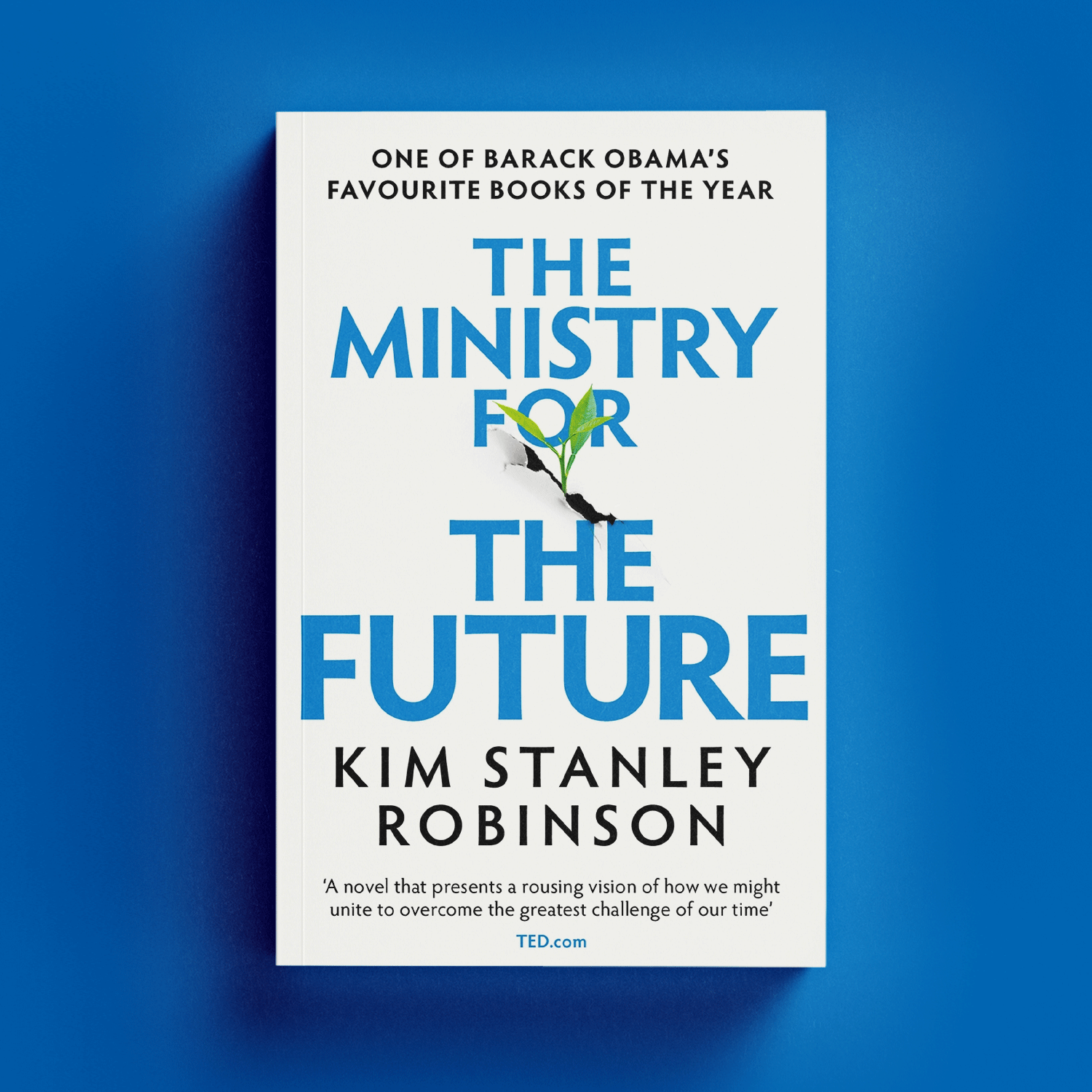danwchan reviewed The Ministry for the Future by Kim Stanley Robinson
Interesting ideas, not a fan of the characterizations
3 stars
A bit rosy view of the world.

Paperback, 580 pages
English language
Published 2021 by orbit.
The Ministry for the Future is a masterpiece of the imagination, using fictional eyewitness accounts to tell the story of how climate change will affect us all. Its setting is not a desolate, post-apocalyptic world, but a future that is almost upon us. Chosen by Barack Obama as one of his favorite books of the year, this extraordinary novel from visionary science fiction writer Kim Stanley Robinson will change the way you think about the climate crisis.
ONE OF BARACK OBAMA’S FAVORITE BOOKS OF THE YEAR
“The best science-fiction nonfiction novel I’ve ever read.” —Jonathan Lethem
"If I could get policymakers, and citizens, everywhere to read just one book this year, it would be Kim Stanley Robinson’s The Ministry for the Future." —Ezra Klein (Vox)
"One hopes that this book is read widely—that Robinson’s audience, already large, grows by an order of magnitude. Because the point …
The Ministry for the Future is a masterpiece of the imagination, using fictional eyewitness accounts to tell the story of how climate change will affect us all. Its setting is not a desolate, post-apocalyptic world, but a future that is almost upon us. Chosen by Barack Obama as one of his favorite books of the year, this extraordinary novel from visionary science fiction writer Kim Stanley Robinson will change the way you think about the climate crisis.
ONE OF BARACK OBAMA’S FAVORITE BOOKS OF THE YEAR
“The best science-fiction nonfiction novel I’ve ever read.” —Jonathan Lethem
"If I could get policymakers, and citizens, everywhere to read just one book this year, it would be Kim Stanley Robinson’s The Ministry for the Future." —Ezra Klein (Vox)
"One hopes that this book is read widely—that Robinson’s audience, already large, grows by an order of magnitude. Because the point of his books is to fire the imagination."―New York Review of Books
"If there’s any book that hit me hard this year, it was Kim Stanley Robinson’s The Ministry for the Future, a sweeping epic about climate change and humanity’s efforts to try and turn the tide before it’s too late." ―Polygon (Best of the Year)
"Masterly." —New Yorker
"[The Ministry for the Future] struck like a mallet hitting a gong, reverberating through the year ... it’s terrifying, unrelenting, but ultimately hopeful. Robinson is the SF writer of my lifetime, and this stands as some of his best work. It’s my book of the year." —Locus
"Science-fiction visionary Kim Stanley Robinson makes the case for quantitative easing our way out of planetary doom." ―Bloomberg Green
Source: Publisher
A bit rosy view of the world.
I thought I would enjoy this book a lot more, and it ended up being a bit of a slog towards the end. A lot of the writing is very "stream of consciousness", and there's not much of a plot to speak of.
In terms of finding ideas for addressing climate change, there's too much focus on blockchain and geoengineering. Not really solarpunk.
I thought I would enjoy this book a lot more, and it ended up being a bit of a slog towards the end. A lot of the writing is very "stream of consciousness", and there's not much of a plot to speak of.
In terms of finding ideas for addressing climate change, there's too much focus on blockchain and geoengineering. Not really solarpunk.
So his answers for both, basically: maximalism. The point he's sort of making is that making the planet safely inhabitable is going to take every tactic and every ideology not necessarily working together but working on some piece of the thing. No one actor gets to be the hero (though I do enjoy that KSR's favorite kind of protagonist remains the middle-aged competent lady technocrat–guy's got a type) and while he's sort of indicating that capitalism as we know it has to die, he's not saying that happens through inevitable worker uprising. Some of it's coercion of central banks and some of it's straight-up guerrilla terrorism. Geoengineering happens at varying scales for better and for worse. Massive economic collapses occur. Millions die. And the point I think from KSR is that's the outcome in his most optimistic take. In general with KSR I don't know if I ever fully agree, …
So his answers for both, basically: maximalism. The point he's sort of making is that making the planet safely inhabitable is going to take every tactic and every ideology not necessarily working together but working on some piece of the thing. No one actor gets to be the hero (though I do enjoy that KSR's favorite kind of protagonist remains the middle-aged competent lady technocrat–guy's got a type) and while he's sort of indicating that capitalism as we know it has to die, he's not saying that happens through inevitable worker uprising. Some of it's coercion of central banks and some of it's straight-up guerrilla terrorism. Geoengineering happens at varying scales for better and for worse. Massive economic collapses occur. Millions die. And the point I think from KSR is that's the outcome in his most optimistic take. In general with KSR I don't know if I ever fully agree, but I always feel fully engaged.
This is also probably the most not-novel-y of his novels in that there's a couple of recurring characters running through the book but a ton of it's just first-person unnamed narration of events happening around the world. Someone describing a drought, a refugee describing a camp, a miner describing the nationalization of his mine. One very weird and fun chapter from the point of view of actual carbon.